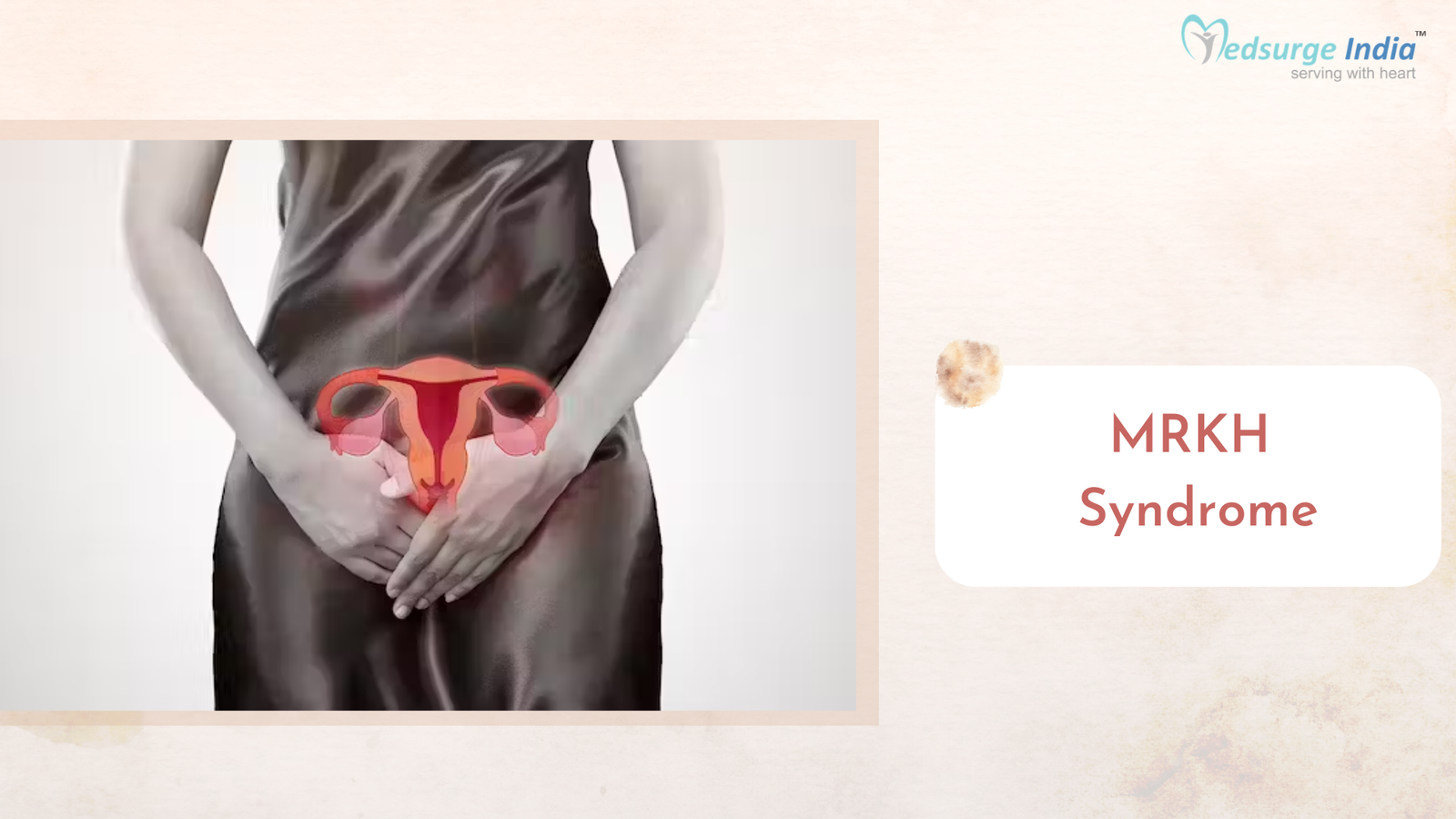
The Mayer-Rokitansky-Küster-Hauser syndrome (MRKH syndrome) is an uncommon congenital condition that can impact women and individuals who are biologically allocated to the feminine gender (AFAB). Your cervix and uterus may not exist or may be underdeveloped as a result of this disease. Your exterior genitalia are usually untouched, and your ovaries and fallopian tubes operate properly. This implies that you will have a lower vagina, a vaginal entrance, labia (vaginal lips), a clitoris, and pubic hair. Since MRKH has no effect on your bladder, you can urinate regularly. Organs like your spine and intestines may also develop improperly in specific kinds of MRKH syndrome.
People usually find they have MRKH syndrome during their adolescence when they do not have a menstruation cycle. This is because their uterus and genitalia are not completely developed. Other times, the short and constricted vaginal canal makes it unpleasant or difficult to engage in sexual activity.
Carrying a baby without medical assistance is difficult due to an underdeveloped or absent uterus and vagina. However, alternatives like IVF (in vitro fertilization) and surrogacy might be available if you have working ovaries that generate eggs. Discuss your wish for children with your healthcare professionals so they can help you weigh your choices.
Types of MRKH Syndrome
MRKH syndrome has two types:
- Type 1: Individuals with this form of MRKH syndrome have fallopian tubes and ovaries that are healthy, but their higher vagina, cervix, and uterus are either obstructed or absent. Other functions are not impacted.
- Type 2: Individuals with this form of MRKH syndrome have problems with their fallopian tubes, ovaries, vertebrae, kidneys, or other organs in addition to having an obstructed or absent upper vagina, cervix, and uterus.
Symptoma and Diagnosis
MRKH syndrome symptoms can change based on the variety you have. In many instances, not having a period by the age of 16 may indicate that your uterus or vagina isn’t fully formed. You may experience:
- swelling
- mood swings
- other menstruation-related signs even if there is no blood if your ovaries are healthy.
Because you have female chromosomes and hormones, you will go through normal sexual development, such as developing breasts and underarm and pubic hair. You may also have trouble or discomfort when attempting vaginal intercourse for the first time. This is because your vagina is smaller, more slender, and shorter than the average vagina.
Symptoms of the type 2 form of MRKH syndrome include:
- renal problems or kidney loss, either of the kidneys.
- spine vertebrae problems or other bone abnormalities.
- lack of hearing.
- issues involving your heart.
When an adolescent miss their first period, medical professionals typically identify MRKH syndrome.
A physical exam is the first stage in the diagnosis of the disease. Your doctor will measure the breadth and girth of your vagina with a gloved finger. Your doctor will probably learn about MRKH through this evaluation because it is connected to a shorter vagina. To determine if your uterus, fallopian tubes, kidneys, or other organs are impacted, they’ll schedule imaging tests like an ultrasound or magnetic resonance imaging (MRI). Your doctor might request blood tests to measure your hormone levels.
Causes of MRKH Syndrome
Although the exact origin of MRKH syndrome is unknown, researchers do know that problems with DNA and chromosomes play a part. There is no known trait that causes the disease. It’s not brought on by anything the biological parent did or didn’t do while the child was growing inside of them.
Your reproductive system matures during the first few weeks of fetal development. Müllerian channels give rise to your fallopian tubes, uterus, cervix, and higher vagina. The Müllerian glands do not fully mature in MRKH syndrome. Nobody has discovered why this happens to some individuals but not to others. Because your ovaries grow independently from the rest of your reproductive organs, your ovaries are typically unaffected in most individuals.
Treatment for MRKH Syndrome
Treatment for MRKH is determined by your objectives and symptoms. Treatment choices include uterine transplantation, vaginal dilation, and vaginoplasty, among other surgery and noninvasive procedures.
1.Vaginal enlargement – One method that medical professionals use to help expand your cervix is vaginal dilators. Dilators come in a variety of lengths and widths and are made of rubber or plastic. These penis-like tubes are used to extend and widen the inside of your vagina. Based on your situation, your doctor will go over the ideal uterine dilator technique.
2.Uterus Transplant – A uterine transfer might make it possible for someone with MRKH syndrome to bear a child. A significant surgical operation called a uterus transplant includes putting a donated uterus inside someone who doesn’t have one. People with MRKH now have the chance to become pregnant and give birth thanks to uterine implants. Although uterus replacements are not frequently used today, they may be a hopeful medical option in the future.
3.Vaginoplasty – A vaginoplasty is a surgical operation performed to make a vagina. The majority of vaginoplasty procedures involve making a cavity and filling it with tissue from another area of the patient’s body.
Bottom Line
Mayer-Rokitansky-Küster-Hauser (MRKH) syndrome can be overwhelming but know that it can be treated. If your uterus or cervix were undeveloped at birth, you might not notice that you aren’t menstruating until you are a teenager. Although not life-threatening, MRKH syndrome is very stressful and interferes with your ability to sustain a baby and engage in sexual activity. It can sometimes affect other systems negatively and raise your chance of developing certain illnesses. Based on your prognosis, discuss your treatment choices with your healthcare practitioner. You can collaborate with a group of experts who can assist you as you manage the MRKH syndrome.
Contact Medsurge India to discover the finest Obstetrics and Urogynecologist physicians in India for the therapy of MRKH syndrome.




 (1).png)